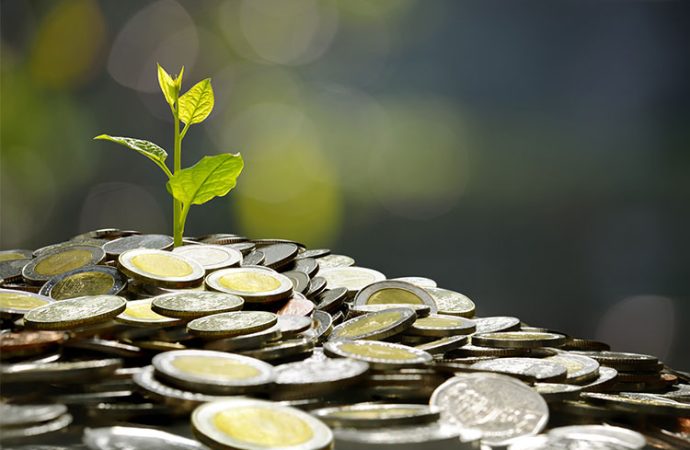Author Recent Posts Rabia Anwaar Latest posts by Rabia Anwaar (see all) Reignited Pak-Afghan Tensions: What Could Be the Way Forward? – November 4, 2025 Geopolitics and the Future of Gaza: Who Are the Real Stakeholders? – October 15, 2025 Iran’s Nuclear Ambitions and Israel’s Aggressive Dominance in the Region – July 15, 2025
Political transitions are meant to create a peaceful, workable and stable environment, but in Pakistan, they are viewed with skepticism as often they affected negatively the economic prosperity of the country. Pakistan is a country with a history of political volatility and economic challenges. Throughout its history, Pakistan has experienced multiple political transitions, ranging from military coups to democratic elections. These transitions have often influenced economic policies, investor confidence, and overall economic stability. Inter-alia other challenges such as geopolitical tensions, lack of political will, ill-administration and corruption; political turmoil in Pakistan adds fuel to the fire. Pakistan is in a dire economic state, the need of the hour is to securitize the economic issue to harness its gains real quick.
Economic growth and political stability are deeply interconnected. On the one hand, the uncertainty associated with an unstable political environment may reduce investment and the pace of economic development. On the other hand, poor economic performance may lead to government collapse and political unrest. Political stability and economic growth work in tandem with each other. In the delicate scheme, their relationship is such that in the absence of the former, the latter dies away. The relationship between political stability and economic growth has always remained the core of policy making in almost every country. However, the case has been seen different in Pakistan.
Political transitions and political uncertainty in Pakistan exacerbate economic tensions. Pakistan’s economy has been vulnerable to external shocks; such as geopolitical tensions, natural disasters and interdependence on global economies. Political transitions can exacerbate these vulnerabilities by disrupting policy continuity and hindering the government’s ability to respond effectively to external challenges. Kalabagh Dam is an epitome in this case, which was meant to build for resource reservation and development of Pakistan, has been placed at altar at the cost of political rifts.
Economic stability has historically faced challenges in Pakistan, with ruling political parties often prioritizing short-term gains over long-term stability. This prioritization has led to a cycle of indebtedness and economic vulnerability. For example, Pakistan is not fond of restricting its luxurious imports rather than diminishing exports. This has disturbed significant balance of trade and payments, resulting in reaching out to multilateral and bilateral donor partners such as IMF and U.S.
The political instability has made Pakistan’s authorities incompetent in raising long-term structural reforms, without which the country cannot prosper. In Pakistan, the rise of violence and civil unrest due to political instability has disrupted the normal trajectory of life, decreased normal market procedures, and played a part in lowering the productivity growth of the country. For example, Traders and businesses have also felt the ripples of political instability because of the rise in the direct cost of production. Whenever the Pakistani government has tried to reduce the balance of payment crisis via IMF deals, etc., these stabilization policies have been overshadowed by political instability. The continued balance crisis and the inability to capture deals of debt relief may lead Pakistan toward bankruptcy.
Pakistan’s geopolitical environment, since the time of its inception has been characterized by tensions with neighboring countries and internal security challenges, often leads to significant expenditures on defense and security. Ensuring national security is crucial, excessive defense spending can strain the economy and contribute to fiscal imbalances. Ruling parties may prioritize defense expenditures over investments in social and economic development, further exacerbating indebtedness.
Political transitions in Pakistan have frequently been accompanied by governance challenges and rampant corruption. Weak institutions and a lack of accountability have undermined efforts to maintain economic stability, with resources being misallocated and public trust eroded. This mismanagement of resources contributes to economic inefficiency and undermines efforts to address debt sustainability. Ruling parties may engage in corrupt practices to consolidate power or secure political support, further exacerbating economic instability.
The ruling political parties in Pakistan lack the political will to reform and make structural adjustments that will pave the way for economic stability. Structural reforms aimed at improving governance, enhancing productivity, and fostering foreign direct investment are essential for achieving long-term economic stability. However, ruling parties in Pakistan have often lacked the political will to implement such reforms, fearing potential backlash or resistance from vested interests. Without addressing underlying structural issues, the country remains vulnerable to economic shocks and indebtedness.
The current coalition government in Pakistan should prioritize economic stability through consensus-building, policy continuity, infrastructure investment, transparency, and international engagement. By adopting a pragmatic and collaborative approach, the coalition government can address economic challenges effectively and lay the foundation for sustainable and inclusive development.
The fallouts of political instability on economic stability suggests that Pakistan must prioritize economic needs and necessities of its citizens and nation as a whole. It requires institutional reforms, strengthen governance mechanisms, transparency and promote inclusive economic growth to achieve lasting stability and prosperity. Only through concerted efforts to address the root causes of instability can Pakistan break free from the cycle of political turmoil and economic uncertainty, paving the way for a brighter economic future and sustainable prosperity.
- Reignited Pak-Afghan Tensions: What Could Be the Way Forward? - November 4, 2025
- Geopolitics and the Future of Gaza: Who Are the Real Stakeholders? - October 15, 2025
- Iran’s Nuclear Ambitions and Israel’s Aggressive Dominance in the Region - July 15, 2025





















Leave a Comment
Your email address will not be published. Required fields are marked with *